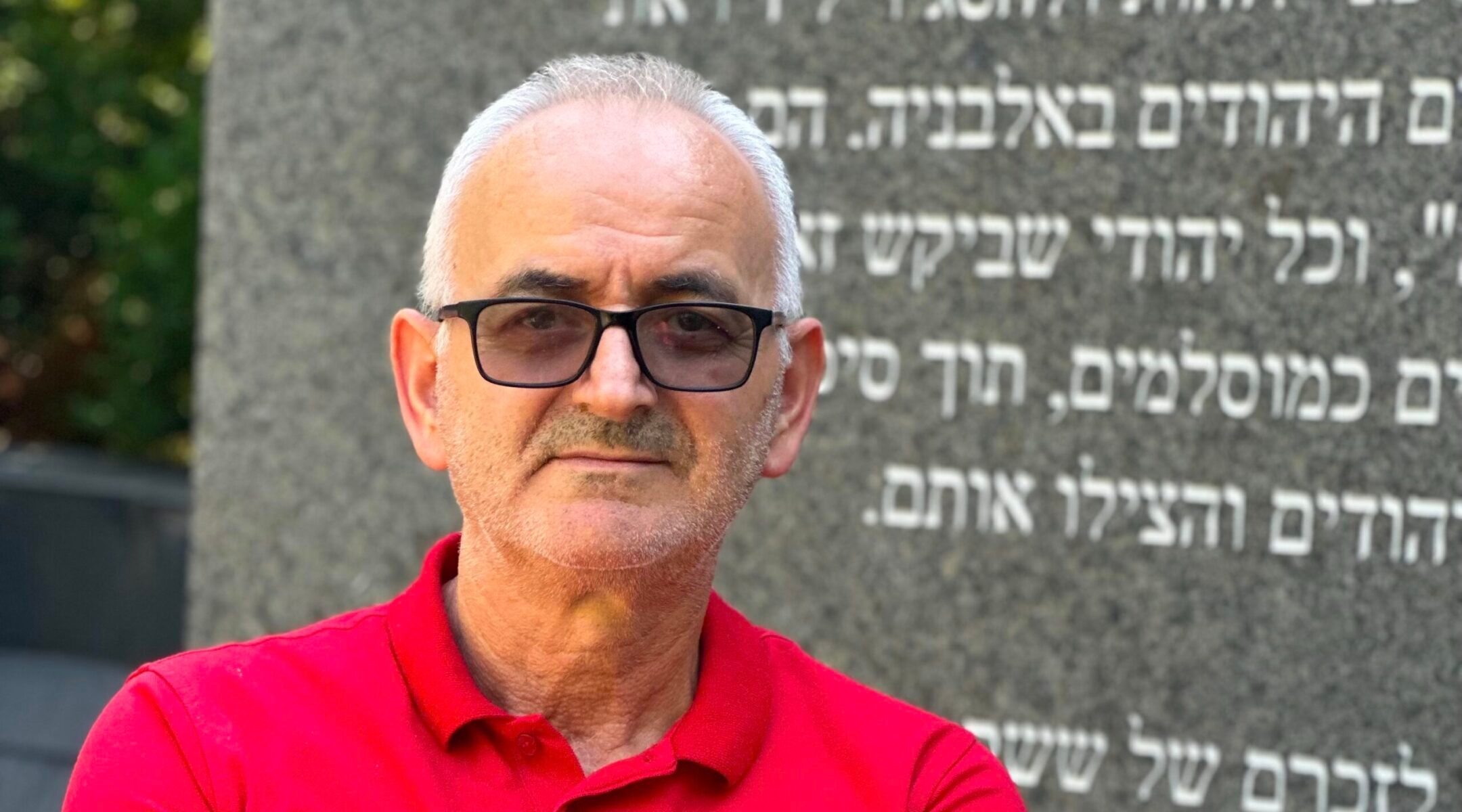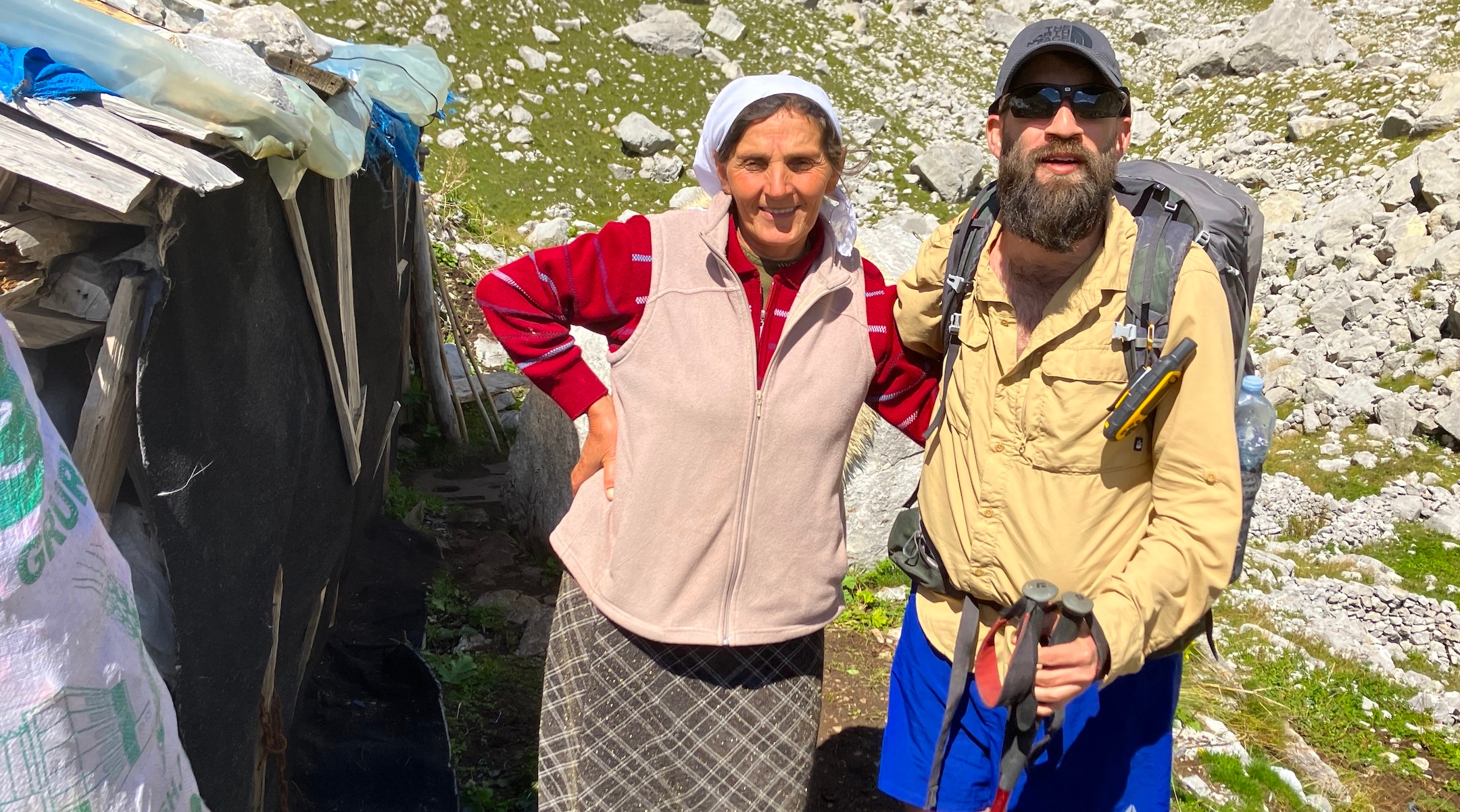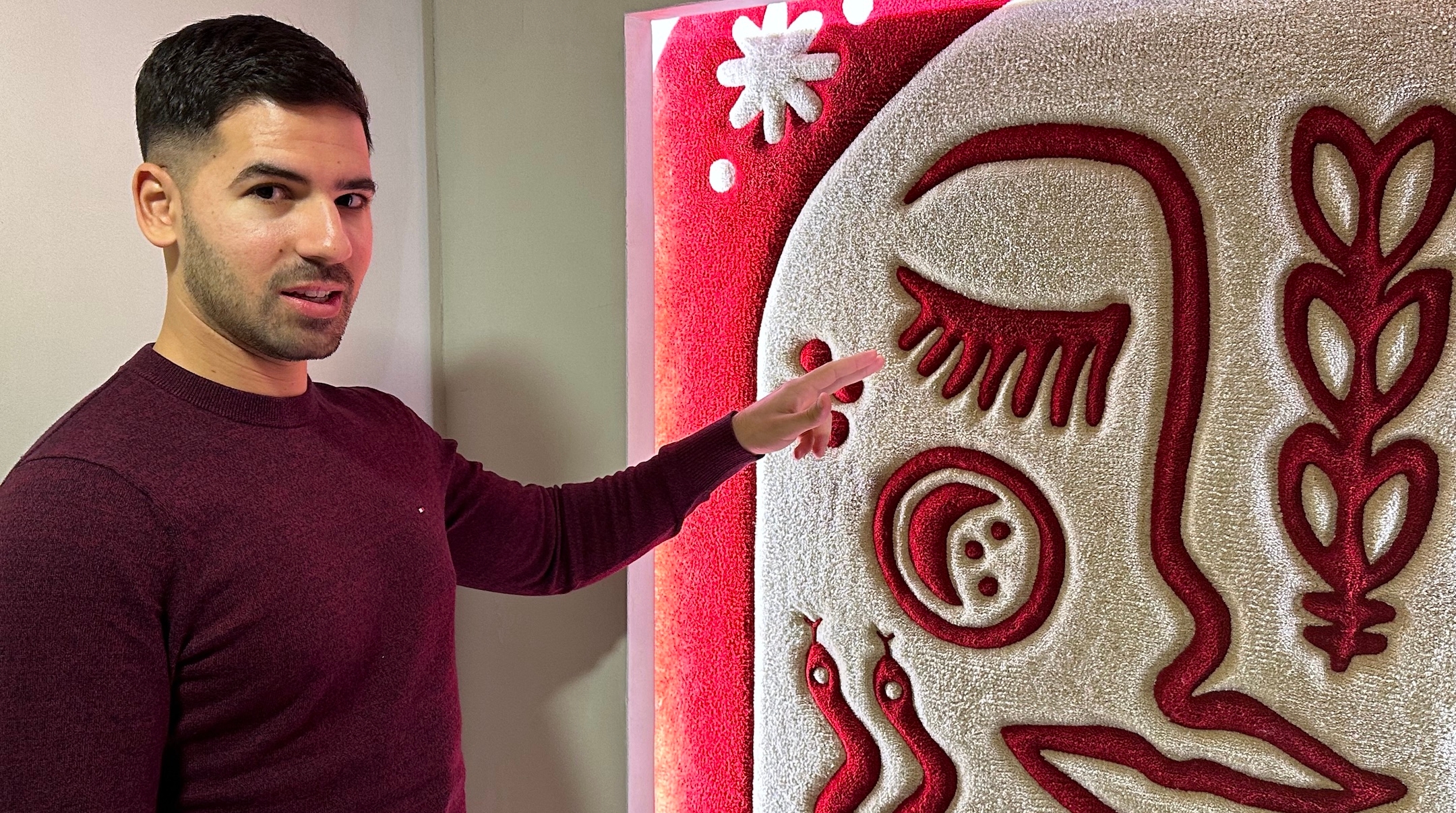TIRANA, Albania — One block off Tirana’s Skanderbeg Square, Harel Kopelman is bringing traditional Albanian culture — in the form of dazzling wedding rituals, colorful costumes and delicious wines and cheeses — to foreigners visiting what was once one of Europe’s most brutal dictatorships.
Albanian Night, a medieval mix of Balkan sights, sounds and tastes, is run by Kopelman, a 31-year-old Israeli-born ex-yeshiva student who grew up in Sunnyvale, California.
After earning a master’s degree in business analytics from Fordham University, Kopelman ended up in Albania by chance four years ago while traveling the globe.
“I fell in love with the country,” said Kopelman, who now speaks fluent Albanian in addition to his native Hebrew and English. “People are super friendly, everything is accessible, and you’re close to nature. It’s like the Wild West, because it’s an untapped market.”
For Israelis at least, Albania is about to get a lot more accessible. Next week, El Al will launch direct, nonstop flights between Tel Aviv and Tirana through its low-cost subsidiary, Sundor.
Meri Kumbe, Albania’s ambassador to Israel, said that among other things, the new service — set to operate three times a week — “will give Israelis an excellent opportunity to discover the historical significance of Albania’s role in saving Jews during the Holocaust.”
In a recent press release, Sundor CEO Gal Gershon called Albania a “small, Israeli-friendly country that’s ranked as one of the safest” by Israel’s National Security Council.
“We’re witnessing increased demand for flights to Balkan countries, which are known for great food, stunning landscapes and excellent value for money — qualities Israelis love,” Gershon said. “Our new route to Tirana will strengthen Israel’s ties with these countries and offer Israelis their favorite vacation experiences just a short flight away.”
Shimon Peres Square in Tirana, dedicated in 2018, honors the late Israeli president and prime minister, who in 1994 became the first Israeli head of state to officially visit Albania. (Larry Luxner)
In 2024, Albania welcomed 11.7 million foreigners and ranks among the world’s fastest-growing tourist destinations.
Among the many sites being constructed to draw tourists are not one but two Jewish museums — one in Vlora and another in Tirana. It’s a remarkable number for a country that, according to the World Jewish Congress, is home to only about 60 Jews.
New hotels are also springing up — including one backed by President Donald Trump’s Jewish son-in-law, Jared Kushner. Albanian Prime Minister Edi Rama approved Kushner’s bid to build a five-star hotel complex on the offshore island of Sazan, the New York Times reported in January. The $1.4 billion project would turn a “former military base into a vibrant international destination for hospitality and wellness,” the newspaper said.
Albania again made headlines last month after Israel’s Channel 12 reported that Trump was pushing Rama to accept 100,000 Palestinian refugees so that Gaza could be depopulated and — like Sazan — be turned into a mega-resort. Rama vehemently denied the report, saying on X that “I haven’t heard something so fake in quite some time. It is absolutely not true.”
Still, Israel’s blossoming romance with Albania stands in contrast to its increasingly strained relations with a number of Western European countries over the ongoing war in Gaza. It also represents a complete turnaround from the years between 1944 and 1985, when dictator Enver Hoxha — who built nearly 200,000 concrete bunkers across the Maryland-size country in case of an American invasion that never came — considered Israel the “little Satan.”
Tel Aviv tax lawyer Nimrod Yaron, 46, has been to Albania five times. He got involved with the country after Albania’s former ambassador in Israel, Bardhyl Canaj, asked him to help craft a bilateral tax treaty that was eventually signed in May 2021.

Dash Frasheri, a prominent writer and scholar who taught himself Hebrew, at Albania’s national Holocaust memorial in Tirana. (Larry Luxner)
“When we advise Israelis to invest in Albania or open a company there, they’re quite surprised. I tell them it’s a very good place for doing business. The people speak English and they have a highly educated population,” he said. “To them, education is sacred, and as Israelis, we know that education is the key to everything.”
Key areas for potential business include tourism, tech, cybersecurity, agriculture and construction. In addition, a new Albanian law exempts digital nomads from local taxation. On the flip side, Yaron said, many hidden costs exist and “you cannot go and work there without knowing the system.”
The attorney added, “I don’t see Israeli investors running to Albania. For one thing, it’s very hard to do business in a country that still works on cash. But one day, Albania will bloom, it will join the European Union, and it’ll become the hub of the Balkans. The infrastructure is already there.”
Local artist and journalist Dash Frasheri, who isn’t Jewish, became obsessed with Israel years ago and started two news portals devoted to bilateral ties. He also took a Hebrew language course and last year published the world’s first Hebrew-Albanian dictionary.
“I think Israel could be one of Albania’s key partners. Many Israeli advisors have already come here, from agriculture to medicine,” Frasheri said over coffee at the Tirana International Hotel, referencing the current prime minister’s frequent visits to the Jewish state. “After Iran hacked into our government computer system, Rama went to Israel to protect our networks and get help from the best Israeli cybersecurity experts.”
Gesturing at the capital’s growing skyline, he noted the construction of a 68-story building behind the nearby Opera House, as well as a planned 80-story skyscraper on the horizon.
“In five years, Tirana will be the architectural capital of the Balkans,” he predicted. “We are becoming a small Singapore.”
Nevertheless, Albania’s population continues to shrink. According to official figures, it’s now home to only 2.4 million people – down from 3.6 million when communism fell in 1991.
“There’s been a mass exodus from villages to the capital, so people are leaving the towns where they grew up, and that inevitably leads to cultural loss and decay,” said Kopelman. “And if you’re a foreigner, you have no idea what Albania is all about. The National History Museum is closed for the next four years, and the descriptions were mostly in Albanian anyway. All you can learn about is communism, which is interesting but not representative of who Albanians are.”

Hedije Hysaj, an Albanian peasant woman living near the mountainous border with Montenegro, poses for a picture with Israeli trekker Yoray Rubenstain of Rishon Lezion. (Larry Luxner)
To fill this gap, Kopelman and his two business partners opened Albanian Night—an interactive cultural center located in a 27,000-square-foot space in the Albanian capital. Originally, they had envisioned the project as a guest house in the northern mountain town of Valbona, which attracts trekkers, but because of its remote location that didn’t work out.
Kopelman began renovating the space in early 2024 and opened it to the public last December. His project employs 50 people and offers roughly 10,000 products made by more than 600 artisans.
An innovation grant from the European Union partially funded Kopelman’s $1.3 million venture, but in order to make it sustainable, he charges a little over $40 for the evening show — offered in both English and Albanian — and about $65 for the dinner package. In the mornings, he opens up the space to Albanian schoolchildren who put on costumes and join in the singing and dancing.
Linda Dervishi, an Albanian woman with Jewish roots now living in Milan, Italy, calls Albanian Night “the most meaningful project ever done” to promote her country’s traditions for both tourists and locals.
“It’s the first place I suggest to any Albanian who wants an authentic return to their roots,” she said. “Harel went deep into our culture and brought it all together better than anyone else. History, photography, traditional art, clothes and food from all over Albania can be touched, tasted and experienced in one night.”
Kopelman, who studied the Moulin Rouge in Paris as well as flamenco shows in Spain, said his Albanian Night is interactive, with the audience encouraged to rent costumes and join in the fun.
He added that even though 45% of Albanians identify as Muslim, the country has little in common with the Arab world, and that the government has no tolerance for pro-Palestinian protests. In addition, Albania’s legacy as a temporary haven for foreign Jewish refugees during World War II is well-known, with the Holocaust widely taught in schools here.
Also of interest to Jewish visitors: Tirana’s solemn Holocaust memorial fronting the city’s artificial lake, with inscriptions in Hebrew, English and Albanian, and Shimon Peres Square, named in honor of Israel’s late president and prime minister.
In advance of El Al’s direct flights, Israeli tour operators are already advertising kosher Passover 2025 packages to Albania, complete with Ashkenazi and Sephardi prayer services, spa treatments and a celebration of Mimouna, the Moroccan Jewish festival that ends the holiday.
Haifa-born Assaf Binder, 46, has lived in Albania since 2007. The owner of a boutique fish farm in the Adriatic coastal resort town of Himara, he first settled in Vlora to manage Albania’s biggest aquaculture operation; his wife, Shira, operated an Israeli-themed bakery and coffee shop.
Ten years later, they moved to Himara, which now ranks among the most popular destinations of the so-called “Albanian Riviera.”
“When I came here, there was nothing,” said Binder, who says he has been in Albania longer than any other Israeli. Each morning, Binder and his employees harvest small quantities of sea bream and sea bass, and in the afternoon, they sell their cage-raised fish to area restaurants at a 30% premium above market prices.
The couple also runs a Hebrew-language Facebook group for Israeli tourists — with over 18,000 members and growing every day. Binder’s next project: to start the country’s first hydroponic greenhouse for cultivating restaurant-quality herbs such as parsley, mint and basil.
“Albania is more expensive than it used to be, but compared to Israel, it’s still very cheap,” he said, praising its natural beauty and cuisine — and most of all, its warmth toward people like him. “I feel only love and admiration here.”
Keep Jewish Stories in Focus.
JR has documented Jewish history in real-time for over a century. Keep our journalism strong by joining us in supporting independent, award-winning reporting.




